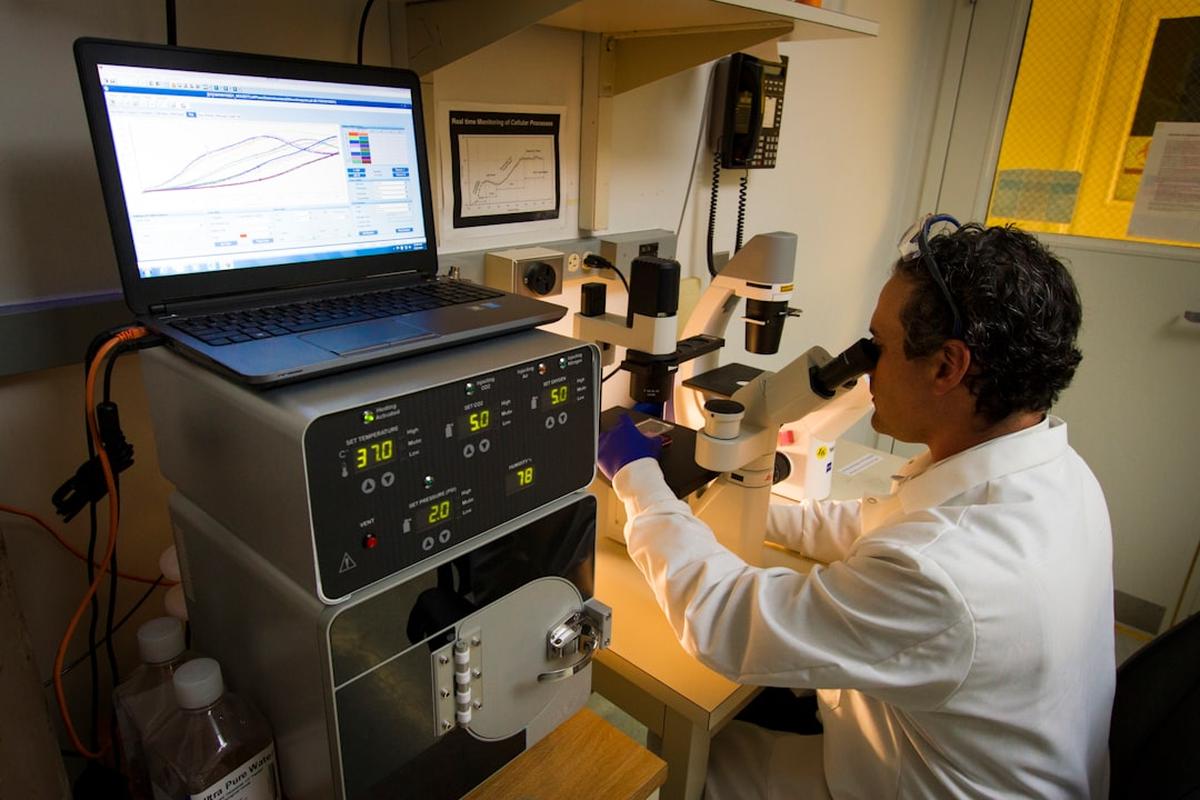Brief Overview of Gene Editing
Gene editing, a revolutionary scientific advancement, has transformed the landscape of biological research. It refers to the process of making precise, controlled modifications to the DNA of a cell or an organism. This technology allows scientists to add, remove, or alter genetic material at particular locations in the genome, thereby opening up a world of possibilities in understanding and treating genetic diseases, improving crop yield, and even potentially creating designer babies.
Understanding Evolution and its Processes
Evolution, on the other hand, is a natural process that has been shaping life on Earth for billions of years. It is the mechanism through which species adapt to their environment and gradually change over time. Evolution operates through processes such as mutation, gene flow, genetic drift, and natural selection, leading to the diversity of life we see today.
The Intersection of Gene Editing and Evolution
The Concept of Genetically Inherited Characteristics
At the intersection of gene editing and evolution lies the concept of genetically inherited characteristics. These are traits that are passed down from parents to offspring through genes. They can range from physical attributes like eye color and height to susceptibility to certain diseases. Evolution, through natural selection, influences which traits become more common in a population over time.
How Gene Editing Can Influence These Characteristics
Gene editing has the potential to directly influence these inherited characteristics. By modifying the genes responsible for certain traits, scientists can potentially control how these traits are expressed in future generations. This could speed up the process of evolution, as changes that would normally take thousands of years to occur naturally could be achieved in a much shorter time frame.
Gene Editing Techniques and Their Potential Impact on Evolution
CRISPR-Cas9: A Revolutionary Gene Editing Tool
Among the various gene editing techniques, CRISPR-Cas9 stands out as a revolutionary tool. It allows scientists to target specific sequences of DNA and make precise edits, adding, deleting, or altering the DNA sequence. This precision and ease of use have made CRISPR-Cas9 a game-changer in the field of genetic engineering.
Other Prominent Gene Editing Techniques
Other prominent gene editing techniques include Zinc Finger Nucleases (ZFNs) and Transcription Activator-Like Effector Nucleases (TALENs). While these techniques are less efficient and more complex to use than CRISPR, they have played significant roles in advancing our understanding of genetics and evolution.
How These Techniques Could Potentially Affect Evolution
The potential impact of these gene editing techniques on evolution is profound. By directly manipulating the genetic makeup of organisms, these techniques could accelerate the pace of evolution, leading to rapid changes in species and ecosystems. However, the long-term effects of such interventions are still largely unknown and pose significant ethical and ecological challenges.
Case Studies: Gene Editing and Evolution in Action
Genetic Modification in Plants and Its Evolutionary Impact
One of the most prominent examples of gene editing impacting evolution can be seen in the field of agriculture. Genetic modification in plants, such as the development of pest-resistant crops, has led to significant changes in agricultural ecosystems. These modifications have not only improved crop yield but also influenced the evolution of pests, leading to the emergence of new pest species and resistance traits.
Gene Editing in Animals: Examples and Implications for Evolution
Gene editing has also been used in animals, with significant implications for evolution. For instance, the creation of genetically modified mosquitoes to combat malaria has raised questions about the potential impact on the mosquito population and the broader ecosystem. While these interventions could potentially save millions of lives, they could also lead to unforeseen changes in the evolutionary trajectory of these species.
The Role of Gene Editing in Species Extinction and Survival
Gene Editing as a Tool for Species Preservation
Gene editing holds promise as a tool for species preservation. By modifying the genes of endangered species, scientists could potentially enhance their survival capabilities, thus preventing extinction. For instance, gene editing could be used to increase the genetic diversity of a dwindling population, making it more resilient to disease and environmental changes.
Potential Risks of Gene Editing Leading to Species Extinction
However, the use of gene editing also carries potential risks. Unintended consequences of genetic modifications could potentially lead to the extinction of species. For example, a gene drive designed to suppress a pest species could potentially spread to non-target species, leading to unintended ecological consequences.
Ethical Considerations in Gene Editing and Evolution
The Morality of Interfering with Natural Evolution
The use of gene editing in influencing evolution raises significant ethical questions. Is it morally acceptable to interfere with the natural process of evolution? While some argue that gene editing could be used to solve pressing global issues such as food security and disease eradication, others caution against playing ‘God’ with nature.
Regulatory Frameworks Governing Gene Editing
Given these ethical considerations, robust regulatory frameworks are needed to govern the use of gene editing. These frameworks should balance the potential benefits of gene editing with its ethical and ecological implications, ensuring that this powerful technology is used responsibly.
Future Perspectives: Gene Editing and Evolution
Predicted Trends in Gene Editing and Their Potential Evolutionary Impact
Looking ahead, gene editing is likely to play an increasingly prominent role in shaping evolution. As our understanding of genetics advances, so too will our ability to manipulate the genetic makeup of organisms. This could lead to the creation of new species, the eradication of diseases, and the acceleration of evolutionary processes.
The Role of Gene Editing in Future Evolutionary Studies
Gene editing will also play a crucial role in future evolutionary studies. By allowing scientists to directly manipulate the genes of organisms, gene editing provides a powerful tool for studying the mechanisms of evolution. This could lead to groundbreaking discoveries about how life on Earth has evolved and continues to evolve.
Final Remarks
Recap of Key Points
Final Remarks, gene editing has the potential to significantly impact evolution. By allowing scientists to directly manipulate the genes of organisms, gene editing could accelerate the pace of evolution, leading to rapid changes in species and ecosystems. However, the ethical and ecological implications of this technology must be carefully considered.
Final Thoughts on the Influence of Gene Editing on Evolution
As we stand on the brink of a new era in biology, the influence of gene editing on evolution is a topic of immense importance. It is a field that promises great advances in our understanding of life, but also poses significant ethical and ecological challenges. As we navigate this new frontier, it is crucial that we do so with a deep respect for the complexity and interconnectedness of life on Earth.
Frequently Asked Questions
What is gene editing?
Gene editing is a process that allows scientists to make precise, controlled modifications to the DNA of a cell or an organism. This technology can be used to add, remove, or alter genetic material at particular locations in the genome.
How does gene editing influence evolution?
Gene editing can influence evolution by directly modifying the genes responsible for certain traits. This could speed up the process of evolution, as changes that would normally take thousands of years to occur naturally could be achieved in a much shorter time frame.
What are some examples of gene editing impacting evolution?
Examples of gene editing impacting evolution can be seen in agriculture and disease control. Genetic modification in plants has led to changes in agricultural ecosystems, while the creation of genetically modified mosquitoes to combat malaria has potential implications for the mosquito population and the broader ecosystem.
What are the ethical considerations in gene editing and evolution?
The use of gene editing in influencing evolution raises significant ethical questions, such as the morality of interfering with the natural process of evolution. Robust regulatory frameworks are needed to balance the potential benefits of gene editing with its ethical and ecological implications.
What is the future perspective of gene editing and evolution?
Gene editing is likely to play an increasingly prominent role in shaping evolution. As our understanding of genetics advances, so too will our ability to manipulate the genetic makeup of organisms. This could lead to the creation of new species, the eradication of diseases, and the acceleration of evolutionary processes.
What is the role of gene editing in future evolutionary studies?
Gene editing provides a powerful tool for studying the mechanisms of evolution. By allowing scientists to directly manipulate the genes of organisms, gene editing could lead to groundbreaking discoveries about how life on Earth has evolved and continues to evolve.
References
- Doudna, J. A., & Charpentier, E. (2014). The new frontier of genome engineering with CRISPR-Cas9. Science, 346(6213).
- National Academies of Sciences, Engineering, and Medicine. (2017). Human genome editing: science, ethics, and governance. National Academies Press.
- Caplan, A. L., Parent, B., Shen, M., & Plunkett, C. (2015). No time to waste—the ethical challenges created by CRISPR. EMBO reports, 16(11), 1421-1426.
- Lander, E. S. (2016). The heroes of CRISPR. Cell, 164(1-2), 18-28.








